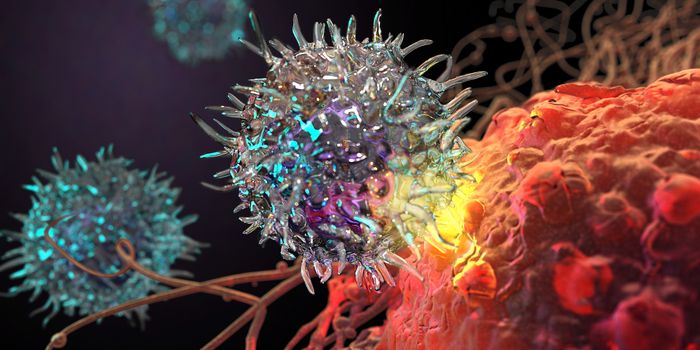Double dose of this cancer treatment rejuvenates immune cells in Head and Neck Cancer
A Phase 2 clinical trial has unveiled why two is better than one. Researchers found significant advantages in delivering two doses of anti–PD-1 therapy before cancer removal surgery. The findings shed light on how to best use this immunotherapy and uncovered a subset of T cells that respond robustly to anti–PD-1 therapy, offering new hope for patients facing head and neck squamous cell carcinoma (HNSCC).
It is a challenging cancer, with many HNSCC patients experiencing recurrence or metastasis despite intensive treatment. However, the emergence of programmed cell death protein 1 (PD-1)–targeting agents has revolutionized the care of these individuals.
T-cells in the immune system feature PD-1 on their surface, acting as an immune 'off switch' when activated by cancer cells. Therefore, pathways that lead to PD-1 inhibition boost cancer immune response. The anti–PD-1 treatments reinvigorate the immune system's tumor-infiltrating lymphocytes (TILs) by silencing PD-1's repressive signals.
What sets this study by Giacomo Oliveira, Ann Marie Egloff, Alexander B. Afeyan, and colleagues apart is the meticulous examination of immune cells directly within the tumor, rather than relying on peripheral blood samples, a common practice in immunotherapy research. This approach provided a more precise understanding of the neoadjuvant strategy's impact on anti-tumor T cell responses.
Ravi Uppaluri and Giacomo Oliveira
Tumor samples were taken from patients who had received two doses of the anti-PD-1 medication pembrolizumab, and their pathologic tumor response (pTR) was assessed. Transcriptomics and T cell receptor sequencing unveiled a remarkable CD8+ T cell population expressing the gene ZNF683, which robustly responded to anti-PD-1 therapy. Activation of this gene in tumor infiltrating lymphocyte cells (TILs) was linked with a strong pTR. This discovery holds profound implications for the field of immunotherapy, as this gene appear to play a pivotal role in bolstering anti-tumor activity.
The findings suggest that PD-1 blockade effectively revitalizes the tumor-killing potential of tissue-resident memory tumor-infiltrating T lymphocytes (TRM-TILs) expressing the ZNF683 gene.
In their two-dose study, the authors affirm, "Our data indicate that PD-1 blockade leads to the unleashing of the cytotoxic potential of TRM-TILs when they are not surgically removed in advance of immune checkpoint blockade therapy, thus leading to a rapid first line of response after therapy administration" (via EurekAlert!).
These findings highlight the potential of anti-PD-1 treatment in HNSCC and introduce a key group of T cells that could be crucial in battling this formidable cancer. Researchers are optimistic that further research could expand ZNF683 expressing CD8+ T cells' relevance as an important biomarker.
Sources: EurekAlert!, Science Immunology, Pharmacology & Therapeutics, NCT02296684









